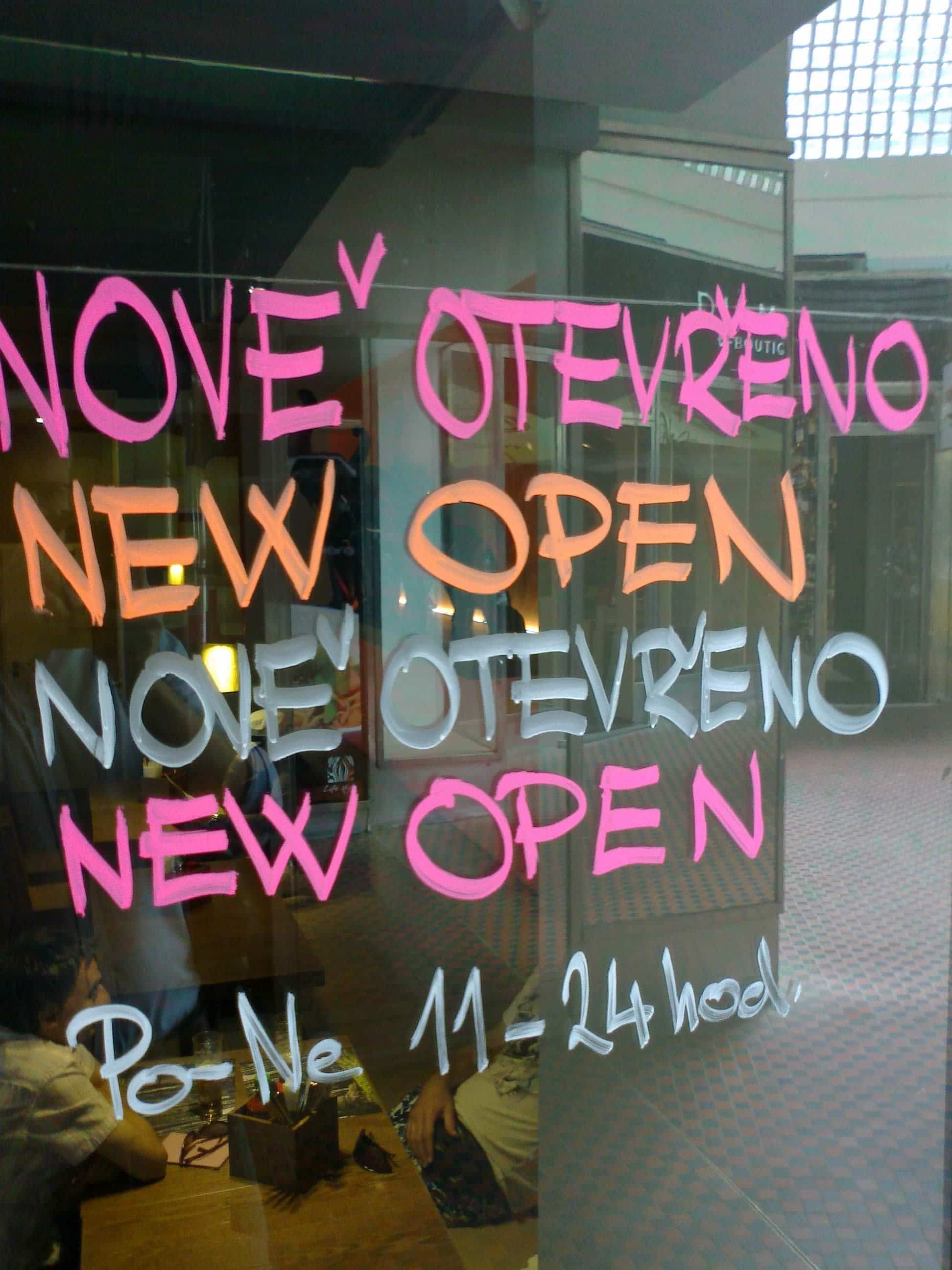
In the 1980s Dr. Stephen Krashen made an announcement.
“Language acquisition does not happen by learning grammar rules.”
Oh, and he has a Ph.D in grammar.
Master Fluent English
by Mr. Vig

In the 1980s Dr. Stephen Krashen made an announcement.
“Language acquisition does not happen by learning grammar rules.”
Oh, and he has a Ph.D in grammar. Read More >
by Mr. Vig

It was Christmas 2007.
I was at my girlfriend’s home.
It was my first visit.
And of course, I wanted her parents to like me.
At least I wanted them to think I wasn’t retarded.
So I decided to show them that after several years of living in their country, yes, I knew at least two words of Czech.
So while eating our soup, I said: “Dobrou polevka.”
And my girlfriend’s father replied “Dobra polevka.”
Phht!
I like to think of myself as a tough guy.
For example, if I’m at the grocery store and the other line is moving faster, I don’t cry and I don’t throw things.
But at the same time, I’m also someone who has a curious side; someone who is always learning; a teacher and a student.
Maybe… if Chuck Norris and Socrates had a baby, that would be me.
But despite this Dr. Tough Guy and Mr. Curious split personality…I must admit, I really don’t like being corrected.
And my guess is, neither do you.
Sure, Czechs tell me all the time, “Please correct me.”
But then my students complain to me about their previous teacher, “He just corrected me all the time.”
It took me years to learn this, but I finally stopped correcting (most of) my students’ mistakes.
Here are the two main reasons:
When I was a kid my next door neighbor was a boy one year younger than me named Kimmy.
When you can’t drive you spend a lot of time with whoever lives next door, so probably half my childhood was spent riding bikes and playing Donkey Kong with Kimmy.
Then one day, years later, Kimmy decided Kimmy wasn’t a good name for a guy in college and he wanted something that sounded a little more…adult…more mature.
So he said “Call me Corbin.”
Everyone said, “Ok, Kimmy.”
After a few years of correcting everyone all the time he gave up. And once again Kimmy was Kimmy again.
If you’re used to saying something, it’s hard to change.
(For those of you who live in the Czech Republic or Slovakia, how many times have you heard a foreigner over the age of forty say “Czechoslovakia”?)
Correction is a nice idea, but the reality is it just doesn’t work.
I’ve tried correcting scientists, lawyers, managers, and accountants… I’ve tried immediate correction, written correction and non-verbal correction…
It just doesn’t work.
And the exceptions are exceptional… very unusual.
Instead of improving, what usually happens is:
Here’s some science for you.
One day, after becoming bored with electrocuting mice, some evil scientist decided to do some experiments on some children.
They asked the children to write a story.
Then they corrected their writing.
For half the students they wrote encouraging comments like “Good job!” and “Keep up the good work!”
And for the other half they took out the red pen. They didn’t lie, they just corrected their mistakes.
The result was that during the following year the first group wrote more and improved more.
While the second group wrote less and improved less.
Of course, you want to get rid of them as soon as possible so you can start speaking like the Queen.
So what does work?
When you can hear the difference between what you’re saying and what your teacher is saying you can use the echo technique and correct yourself.
The reason native speakers make fewer mistakes isn’t because we were corrected more than you or because we learned all the grammar rules, it’s because we’ve seen more English and have heard more English and have a stronger memory of correct English.
And now, when we open our mouths, the words come out correctly because…well, it just sounds correct.
And that’s what you want.
So go do your homework and watch some TV!
Image of Chuck by Taric Alani taken from Flickr, under Creative Commons licence.
Image of the scientist by Florida Fish and Wildlife taken from Flickr, under Creative Commons licence.
by Mr. Vig
by Mr. Vig

[social_sharing style=”style-3″ fb_like_url=”httpssss://www.facebook.com/mrviginprague/” fb_color=”light” fb_lang=”en_GB” fb_text=”like” fb_button_text=”Share” tw_lang=”en” tw_button_text=”Share” g_lang=”en-GB” g_button_text=”Share” alignment=”center”]
Has this ever happened to you?
You’re speaking English and then you start to think about the grammar…
Or maybe you do some exercises in your grammar book and then try to speak…
And your speaking isn’t better — it’s worse!
Why is that? What’s going on?